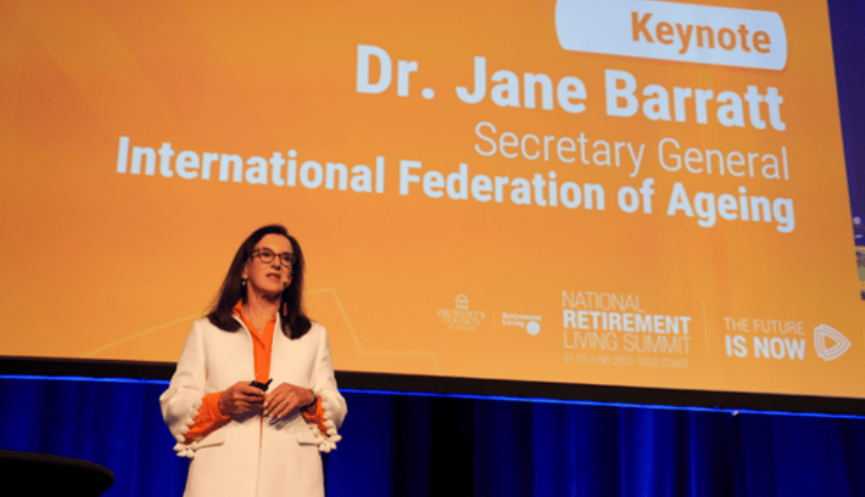Dr Jane Barratt, Secretary General of the International Federation of Ageing, believes the retirement sector in Australia needs to change its focus to wellness.
She told the National Retirement Living Summit in the Gold Coast that the sector is at the “nexus” of what the next generation of the retirement industry will look like in the future.
“What we should be doing as providers or providers of facilities is trying to understand what is going to make the difference in someone’s functional ability, because a dependency model doesn’t work,” said Dr Barrett.
“In Hong Kong, the incentivisation is: if an older person can maintain their function, the provider of services is incentivised. But in most countries, and Australia is the same, it’s the other way around, greater dependency, greater money, and that needs to change,” Dr Barratt said.
“I challenge (the industry) to talk about services. We don’t want to be cared for, but we want to have services that enable us, services that enable function, enable me to do what I want to do.
“Creating dependency is not going to be a strong profit margin. So, what we have to do is flip it on its head. And we really have to think about how is the environment you’re creating – both people wise and architectural wise – going to further the health and wellbeing?”
She said governments had to invest in the sector for it to change.
“Aged care is not the retirement industry… and what we need to be doing here is thinking about how can you create the environment of healthy living for as long as possible, which is not the job of the aged care industry.”
The SOURCE: a number of operators are investing in wellness, notably in SA with ECH, ACH and Southern Cross Care each having dedicated gyms and allied health services. Private operator Keyton is launching 23 staff nationally to design and implement wellness programs. Five Good Friends is offering its Concierge service to village operators.




